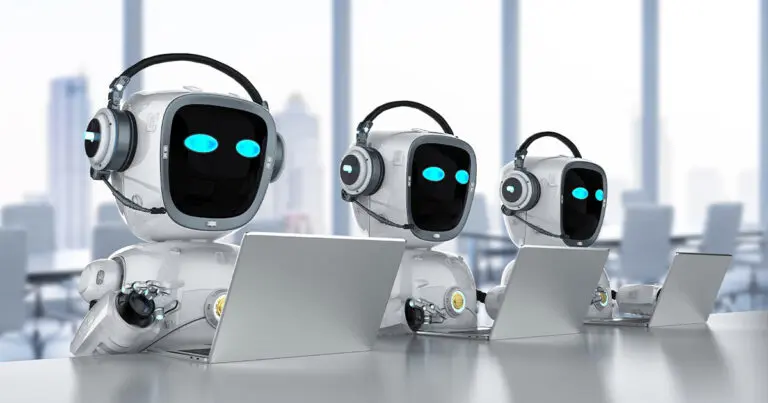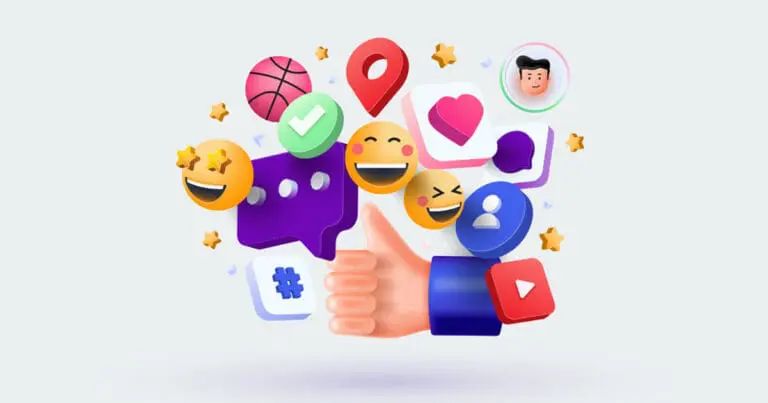Can AI Assistants Replace Humans?

The rise of AI assistants like ChatGPT, Gemini, Siri, and Alexa has ignited a global conversation: can artificial intelligence truly replace the need for human workers?
With AI-powered technologies becoming more embedded in our daily lives—whether through virtual assistants, automated outreach tools, or AI-powered chatbots—efficiency has never been more attainable.
But the question remains: can machines replicate the human touch needed in complex, emotional, or highly personalized tasks?
Or are these tools better viewed as collaborators designed to enhance, not replace, human capabilities?
What are AI Assistants?
AI assistants are smart tools designed to help individuals and businesses get more done—faster and with less effort—by using technologies like Natural Language Processing, machine learning, and other forms of artificial intelligence.
These AI models often use large language models and neural networks to understand and generate human-like responses in real time.
Some are text-based, like ChatGPT, while others are embodied in AI avatars, personalized digital representatives, or digital representatives powered by computer vision, voice and speech analysis, or even facial recognition technology.
What AI Assistants Do Well
Currently, AI assistants offer speed and efficiency, 24/7 availability, scalability of AI systems for business growth, as well as objective, unbiased responses.
Speed and Efficiency
AI helpers excel at automating repetitive tasks such as scheduling software operations, note-taking, and managing routine communications.
These systems significantly boost productivity by handling bulk data processing, drafting initial documents, or even creating meeting notes with minimal human intervention.
24/7 Availability
Unlike human workers, AI assistants don’t require breaks or sleep, making them ideal for continuous customer interactions or sales assistants roles.
This 24/7 support enables better global accessibility across time zones helping reduce customer wait times and improve satisfaction rates.
Scalability of AI Systems for Business Growth
AI systems can process thousands of requests at once, whether they’re managing multiple calendars, translating languages, or conducting automated outreach tools campaigns.
This makes them especially useful for growing businesses that need to handle a high volume of inquiries without exponentially increasing headcount.
AI Ensures Objective, Unbiased Responses
Because they lack emotion, AI-powered chatbots and assistants provide responses based purely on data and programming, ensuring unbiased service.
This objectivity is particularly useful in standardizing customer service, creating fairer agent building practices, and automating decisions in compliance-heavy industries.
The Human Advantage Over AI Assistants
The human advantage over AI assistants lies within emotional intelligence, critical thinking and creativity, ethics and judgement, and building genuine human relationships.
Emotional Intelligence
From offering emotional support in a mental health setting to recognizing subtle cues in tone, empathy and compassion are irreplaceable.
These qualities are critical in roles like mental health counselors, nurse practitioners, and customer-facing professionals where human interaction determines outcomes.
Critical Thinking & Creativity
While generative AI can suggest ideas, it lacks the nuanced perspective to evaluate risks or propose entirely novel concepts.
Human creativity is a core competency that drives problem-solving in ways that go beyond data analysis, making it vital for strategic planning and original content creation.
Ethics and Judgment
Humans possess the judgment to make ethical choices, especially in ambiguous situations where AI systems may struggle or produce biased results.
Ethical decision-making ensures not only legality but also moral responsibility—something no AI model can yet guarantee.
Building Genuine Human Relationships Beyond AI
AI can simulate communication, but it cannot build relationships or relational intelligence or social capital through true human interaction.
Roles that require negotiation, mentoring, or community-building still demand the unique warmth of the human touch.
Where AI Falls Short (Today)
Currently, AI falls short in its lack of true understanding, understanding contextual nuance in communication, ethical challenges of AI bias and accountability, and dependence on training data.
Lack of True Understanding
Despite advances, large language models cannot truly feel or comprehend the emotional weight behind words because they only analyze patterns.
This means that for tasks needing self-awareness or emotional resonance, AI remains a limited tool.
Understanding Contextual Nuance in Communication
Although AI avatars and digital representatives are improving, they still struggle with sarcasm, humor, cultural references, and implied meaning.
As a result, in fields like therapy, HR, or global business, this shortcoming can lead to misunderstandings or missteps.
Ethical Challenges of AI Bias and Accountability
Because AI assistants rely on training data, they can unintentionally perpetuate bias or make unaccountable decisions.
In sensitive industries—such as finance, healthcare, or hiring—this raises serious privacy and security concerns without clear ethical guardrails in place.
Dependence on Training Data
AI’s performance is limited to the data it has been trained on, so if that data is flawed, outdated, or biased, so are the outputs.
This is especially critical in domains like video-based AI training platforms, agent building, and AI tutors, where the quality of content affects real-world outcomes.
Humans + AI: The Best of Both Worlds
AI is best used as an augmentation tool—not a replacement for humans.
For Example:
- In healthcare: AI-powered technologies can quickly scan surgical datasets, while doctors use their emotional insight to diagnose and comfort patients.
- In business: AI helpers can draft proposals or routine communications, which are then personalized by human staff.
- In creative industries: generative AI can suggest directions, but it’s the human touch that shapes those ideas into impactful strategies.
The future lies not in “man versus machine” but in a symbiotic relationship where each enhances the other’s strengths.
What AI Assistants + Humans Means for the Future of Work
AI assistants in combination with the human touch will mean the need for reskilling and upskilling, the transformation of job roles, humans being the differentiator, and establishing ethical policies for AI deployment.
Reskilling & Upskilling
As AI assistants become standard in professional environments, workers will need to learn how to use these tools effectively, and roles will increasingly require hybrid skills
Core competency training and video-based AI training platforms will become essential for upskilling.
How AI Transforms Job Roles
While many roles won’t disappear, they will evolve.
For example, sales assistants might rely more on automated outreach tools, and customer service professionals may focus on complex interactions while AI-powered chatbots handle basic inquiries.
The Human Differentiator
In an era of automation, human skills like emotional intelligence, creativity, and leadership will carry increasing value.
Workers who excel in these areas will find their roles enriched rather than diminished as these attributes are not just valuable—they’re irreplaceable.
Establishing Ethical Policies for AI Deployment
The growth of AI brings the need for clear policies to govern how AI assistants, AI tutors, and personalized digital representatives are deployed.
Organizations will need to address privacy and security issues while maintaining transparency and fairness.
Will Personal Assistants Be Replaced By AI?
AI assistants are powerful allies in managing schedules, organizing information, and handling administrative tasks—but they cannot replace the value of true human interaction.
While AI-powered technologies improve efficiency, only humans provide empathy, trust, and intuitive judgment.
The future of productivity and connection lies in partnership, not substitution.
In the end, AI can replicate tasks—but only humans can bring meaning.
Looking to hire top-tier Tech, Digital Marketing, or Creative Talent? We can help.
Every year, Mondo helps to fill thousands of open positions nationwide.
More Reading…
- What is Polyworking? Everything Employers Need to Know
- Robotic Process Automation: What It Is, Does, and Teams to Hire
- IA for AI: Intelligent Automation Strategies for Sustainable Success
- Burnout vs. Boredom: Signs, Differences, and Tips
- How to Build Teams That Evolve With Your Business—Not Against It
- AI and Automation Trends: Planning for Q4 Changes & Challenges
- Why Speed-to-Execution Will Define the Next Generation of High-Performing Teams
- Why Mid-Market Companies Are the New Innovation Powerhouses
- 4 Proven Ways to Quickly Staff Event Teams
- Placing vs. Replacing: Why the Distinction Matters in Hiring
- Beyond the Buzzwords: What Real AI Transformation Actually Takes



